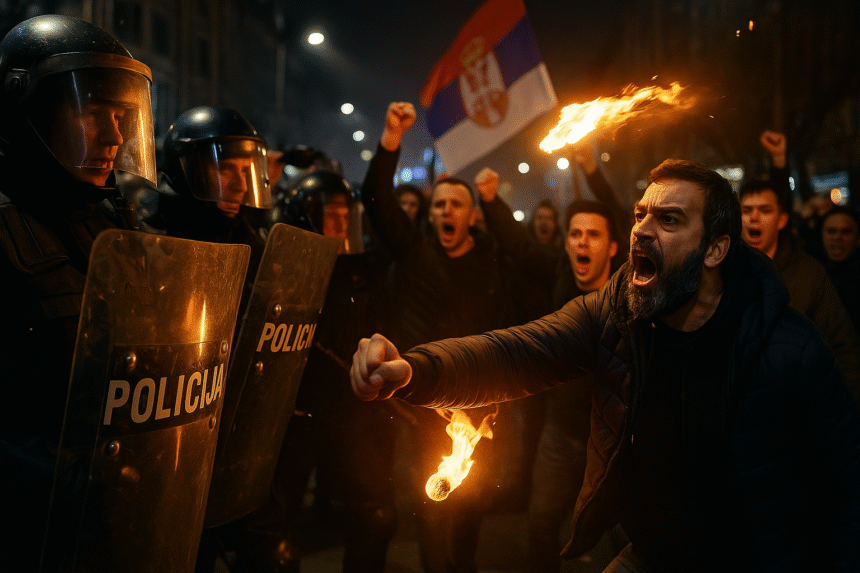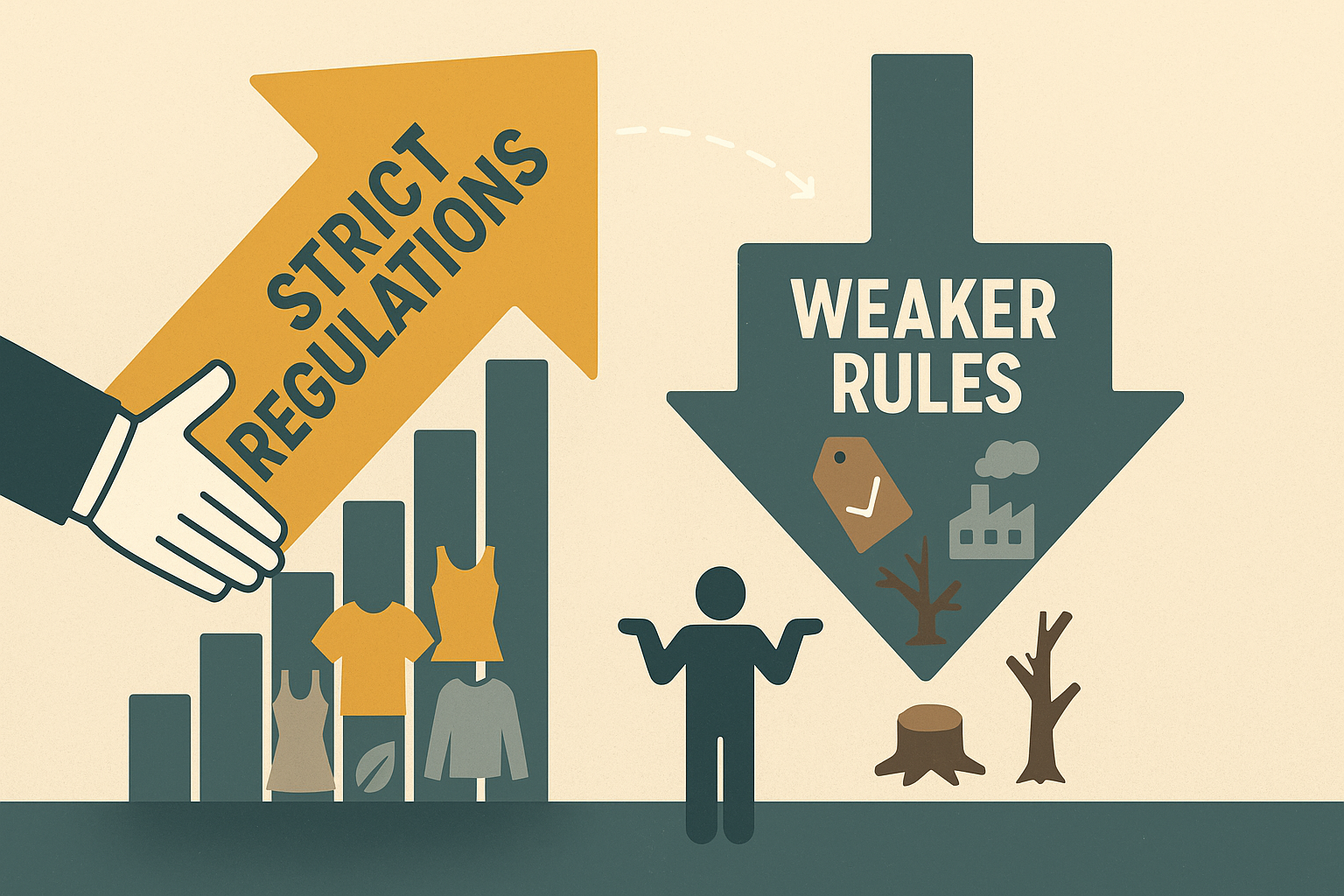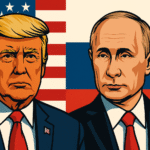Serbia’s political crisis deepened on Wednesday as anti-government demonstrations turned violent, with clashes between supporters of President Aleksandar Vučić and protesters demanding his resignation. The unrest, which began in November, has escalated into the most serious challenge of Vučić’s presidency.
Nationwide Clashes and Escalation
In Belgrade, police fired tear gas at demonstrators, while pro-government groups armed with batons were reported to have assaulted anti-Vučić activists near ruling party offices. In Novi Sad, video footage captured gunshots being fired into the air. Reports indicated that dozens of protesters and police officers were injured during the wave of demonstrations across multiple Serbian cities.
The student group leading the protests accused the authorities of attempting to provoke “civil war,” alleging that police shielded regime loyalists who attacked demonstrators with fireworks and carried firearms. “We will not allow them to continue destroying human lives,” the group stated, calling for continued mass mobilisation.
The protests, initially sparked by public outrage over a canopy collapse at Novi Sad’s train station last year that killed 16 people, have grown from student-led peaceful gatherings into larger and more confrontational movements involving hundreds of thousands. Analysts warn that the recent surge in violence marks a significant shift from earlier restraint.
Trigger for the Latest Protests
Wednesday’s mobilisation followed incidents in the northwestern town of Vrbas on Tuesday, where government supporters were seen throwing flares, rocks, and bottles at demonstrators outside the ruling party’s offices. Protesters responded by hurling objects back.
Vučić’s Response and Accusations
President Vučić accused the protest movement of receiving instructions from an unnamed foreign source — a claim he has not substantiated — and escalated his rhetoric in a televised address, alleging that demonstrators were “organising to beat and kill” his supporters.
“We never even thought about bringing the army out and there is no need. There will be no civil war,” Vučić said. “The streets of Belgrade and soon Novi Sad are being cleaned of thugs. There will be no mercy for thugs and hooligans.”
International Reaction
The European Union and Western partners have urged both sides to exercise restraint and called on Vučić to uphold the right to freedom of expression, but they have stopped short of direct intervention — a stance that has frustrated opposition groups. Vučić and his ally, Russian President Vladimir Putin, have accused Western powers of aggravating the crisis.
Political Calculations
Milos Damnjanovic, an analyst at the Belgrade-based consultancy BIRN, attributed the protests to a series of political missteps by Vučić. He suggested that the president is unlikely to call early elections before the constitutional deadline in 2027.
“It is hard to see why Vučić would call a snap vote he doesn’t need at a moment when his SNS party’s popularity is lower than ever,” Damnjanovic said. “If elections happen, they could be yet another miscalculation.”








